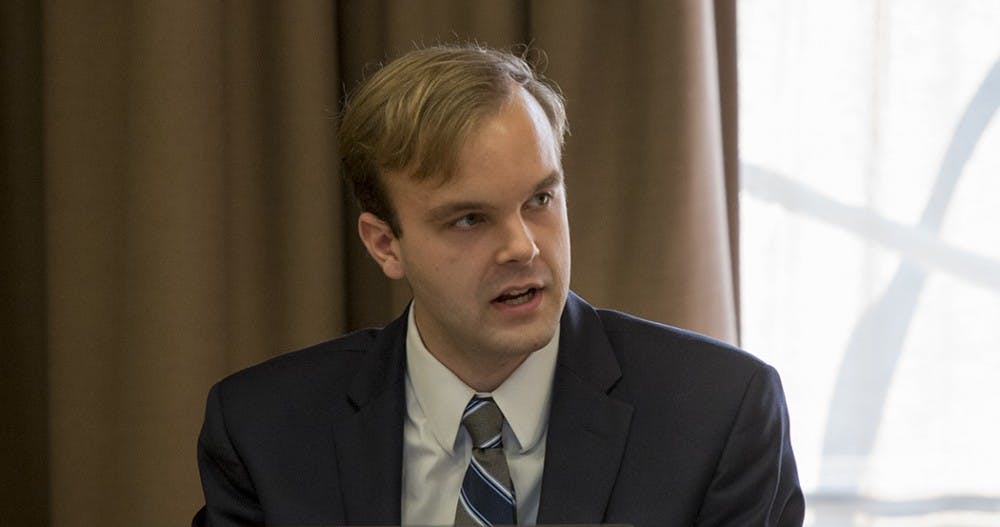Second-year Law student Peter Bautz has been elected as incoming chair of the University Judiciary Committee, the organization announced Sunday.
Third-year College student Jack Brake was elected vice chair for trials, second-year College student Jordan Arnold was elected vice chair for sanctions and second-year Engineering student Kevin Warshaw was elected vice chair for first-years.
Bautz said the focus for the new executive members of the committee will be outreach, especially to graduate students.
“There’s probably some issue with us getting sufficient outreach to the graduate schools to get them invested in the system,” Bautz said in an interview with The Cavalier Daily. “As a graduate student I think that I’m in a position to increase the outreach and ability of us to reach out to these graduate students to let them know what we are all about and hopefully encourage them to run to be reps in the near future.”
Brake and Warshaw echoed this in proposing new ideas for events to make the committee more involved with other organizations.
“I’d like to see the First-Year Judiciary Committee start playing a more active role in the community,” Warshaw said. “To accomplish this, I intend to have the next first-year representatives attend at least one meeting of another organization and have a dialogue with their membership on how the UJC can better serve them.”
The goal for the new executive committee members is to make sure all students know about the duties of UJC and how it works in the broader system of student self-governance.
“I think that we can do a much better job or engaging students on a daily basis in our work so it’s not just the students who unfortunately come before the UJC who all of the sudden know what we are about,” Brake said. “But that people [have] a better idea of their rights and responsibilities within the system.”
One form that UJC’s outreach might take is by creating plaques showing the University’s 12 standards of conduct which would be placed in on-Grounds residences.
“The goal with this is to spread awareness of the University Judiciary Committee mission and the standards to which all students are held,” Warshaw said. “In addition to just having the plaques physically placed there as a reminder, we’re also looking into building an educational system around the plaques.”
The educational systems would include discussion with UJC representatives about University issues and UJC’s role, Warshaw said.
Outreach is also a major point for Arnold, especially when it comes to how students see the committee’s role.
“I think UJC has something of an issue with just getting our name out there,” Arnold said. “I think a lot of students don’t really know what the UJC is or does. I think we try our best to be an educational rather than punitive organization in the sense of the way we craft our sanctions.”
At the UJC general body meeting Sunday, the newly-elected leaders were introduced and the committee voted on proposed bylaws changes.
The keynote speaker for the meeting, Associate Vice President for Student Affairs Susan Davis addressed the committee and discussed the importance of student governance within UJC.
The principle of student self-governance is “very seldom [challenged] within the institution because it’s such a bedrock principle,” Davis said.
She also said there’s a need to work to defend and preserve the self-governance aspect of UJC since the entire system needs that principle in place to run successfully.
Davis also addressed the Family Education Rights and Privacy Act, a federal law that ensures the confidentiality of student records.
Given that UJC works with student records, Davis said treating such information with respect is “not just proper practice, it’s a legal duty.”
“We at the University of Virginia have designated every student in this room to have the information you need,” Davis said. “You all have been written in as agents and officials of the University who have access to that information [disciplinary and University records].”
The voting members of the committee then approved the proposed bylaws changes introduced previously. The changes include clarification of procedures for determining the number of cases members must participate in, prohibiting accusers from issuing written statements during trials and changing the role of educators to be better suited to outreach.
Only the change to the educator role received opposition from members, receiving two “no” votes and two abstentions out of 18 total votes. The other changes passed unanimously.
Correction: The caption on this article's photo previously misstated Bautz's first name.







